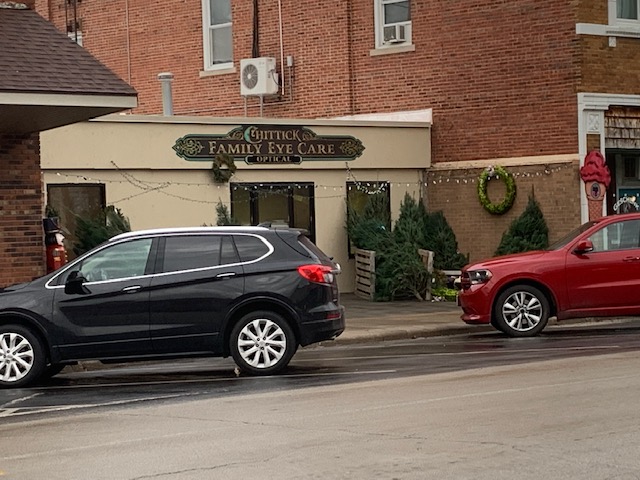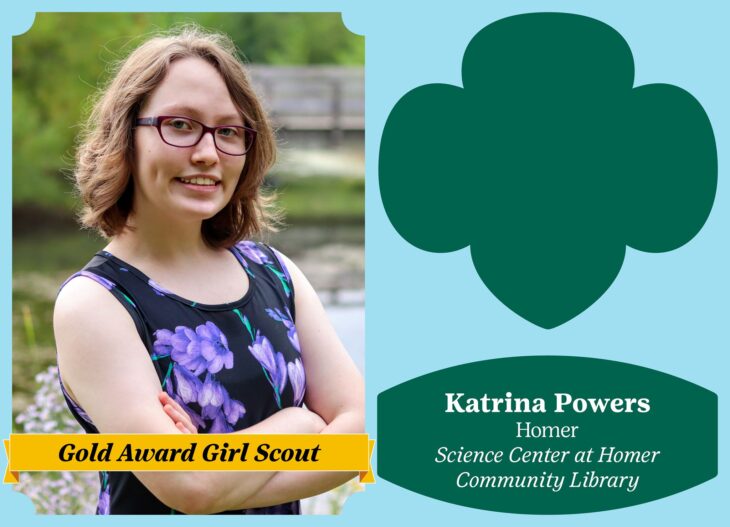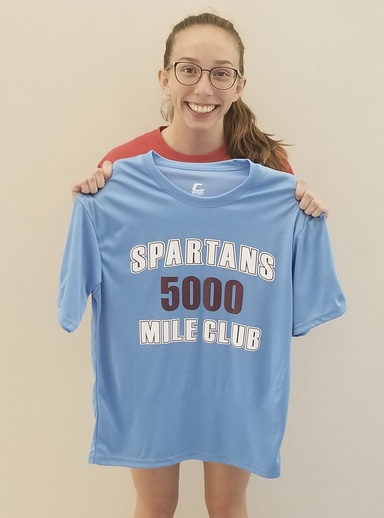Sara Steffens’ Gold Award project is personal.
The Ogden Girl Scout was inspired by her sister.
“I learned that the Gold Award must address a national or global issue, the first thing that came to my mind was food allergies,” Steffens said. “My little sister is allergic to peanuts.”
When Steffens’ sister was two, she had a very serious allergic reaction to peanuts.
“Luckily, my mom knew immediately that she was having an allergic reaction and told us to call 911,” Steffens said. “The fire department arrived in time and everything turned out ok.”
The event made Steffens realize how little I knew about food allergies and likely how little everyone else knows about them.
“When it comes to food allergies, acting fast is crucial because it can only be a matter of minutes before someone’s airway begins to close,” Steffens said.
So for her my Gold Award project she created, recorded, and presented a lesson plan to educate students and staff about food allergies. Steffens created three different versions of the lesson plan so that all students could learn about food allergies at an age appropriate level.
“I presented the project to a few of my own classes at Unity High School and to all of the sixth, seventh, and eighth grade science classes at Unity Junior High School,” Steffens said.
She also presented her project at few girl scout events, such as World Thinking Day.
“The goal of my project was for students and staff to be able to recognize the signs and symptoms of an allergic reaction and know how to take action,” Steffens said. “I achieved this goal by creating a slide show with information about food allergies, including what they are, what may cause them, signs and symptoms, and the importance of recognizing them quickly. I also brought in trainer EpiPens and demonstrated how to use them before allowing students to practice.”
Steffens said getting the project approved was like a mini project itself. She had to first come up with a plan and fill out pages of paperwork answering questions about what exactly she planned to do, what challenges she may face, and how she would fill the 80 hour requirement. Then she had to wait to get approved before she could start anything. Luckily, she got approved the first time and was able to get started.
Steffens said the project taught her about time management, how to keep herself motivated and also taught her communication skills.
“Most importantly, it taught me that I am capable of doing difficult things if I put my mind to it,” she said.
Steffens said after earning the Bronze Award and the Silver Award, the Gold Award was the next logical step.
“It was just something I kind of always knew I would do,” she said.
“Scouting has been such a wonderful experience for me.”
Even though she was passionate about the project, finding the motivation to complete the project was at times difficult, Steffens said.
“Getting started was a struggle, first because I could not come up with a plan to address my goal of the project. Then, COVID hit and I had to completely re-do my plan. Next thing I knew it was the second semester of my senior year and I only had 20 of the 80 hours,” Steffens said. “There were quite a few times I wanted to give up on my project, but I knew the importance of it and I’m so glad I didn’t.”
For Steffens the most rewarding part was knowing she educated students and staff on an important issue.
“When it comes to food allergies, acting quickly is crucial and someone can’t do that if they don’t know the signs and symptoms of an allergic reaction,” she said. “A week after I gave my presentation at the middle school, one of the teachers emailed me saying a student had an allergic reaction. He did not know if it was a student or teacher that took action, but either way I gave the students the tools to know what to do and help save a life in the event of a future allergic reaction.”
Steffens said that she hopes to continue educating people about about food allergies even though my project is finished.
Here are a few key things to know about food allergies 1. Signs and symptoms include, but are not limited to: swelling of lips tongue and throat; severe shortness of breath; nausea/vomiting; and rash. 2. There is no such thing as a mild allergy, only mild reactions. Any person with an allergy can experience a severe reaction at any point, even if they have only had mild reactions in the past. 3. Cross contamination is a very serious threat to someone with an allergy. Unless it is guaranteed that a food product has not come into contact with a certain allergen, the person with an allergy should not consume it. 4. Acting quickly is critical. Give EpiPen immediately if available and then call 911. Wait for the ambulance and go to the hospital for monitoring, as a second reaction can occur without a second exposure.





























You must be logged in to post a comment.